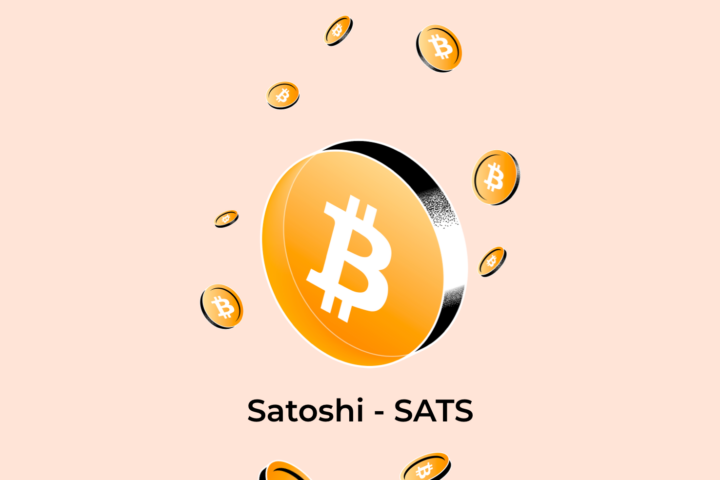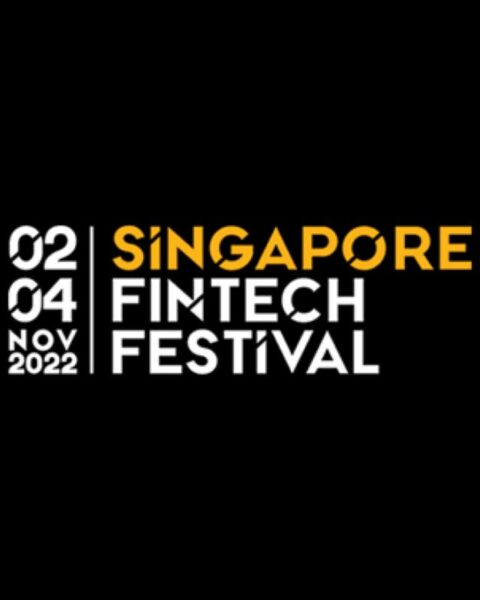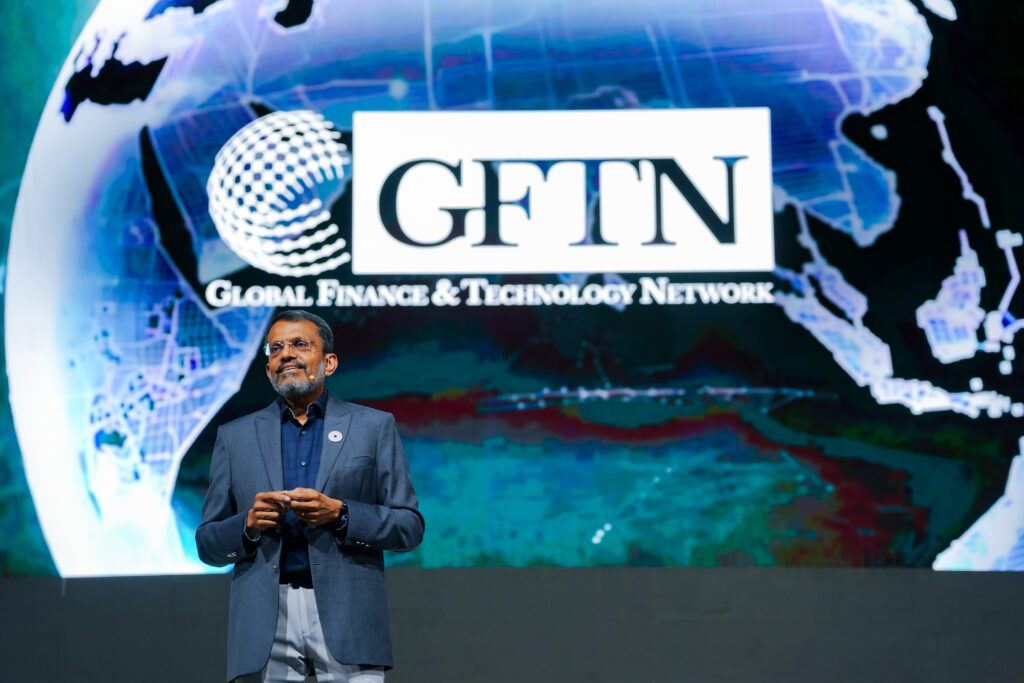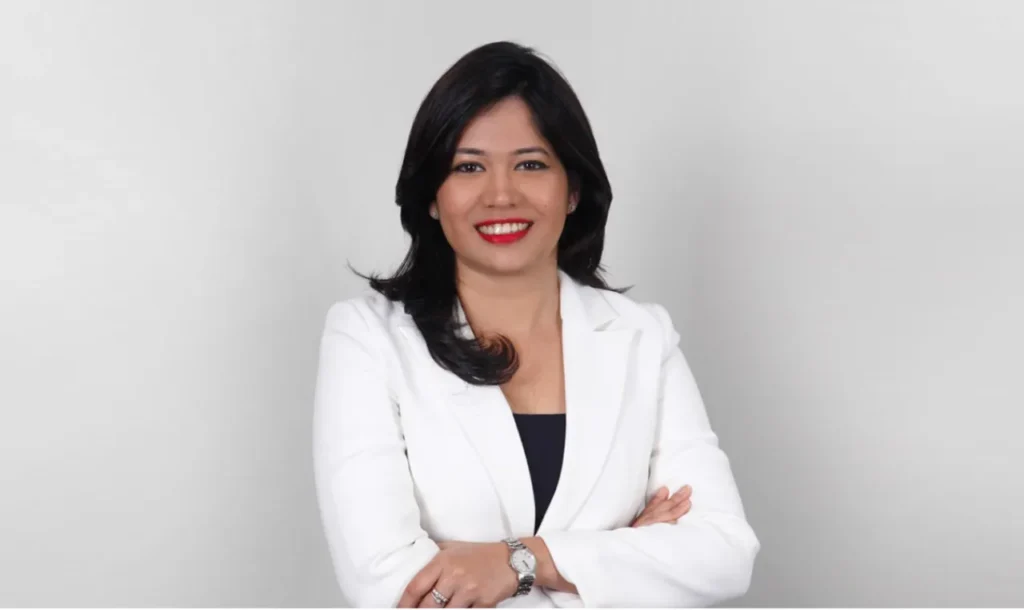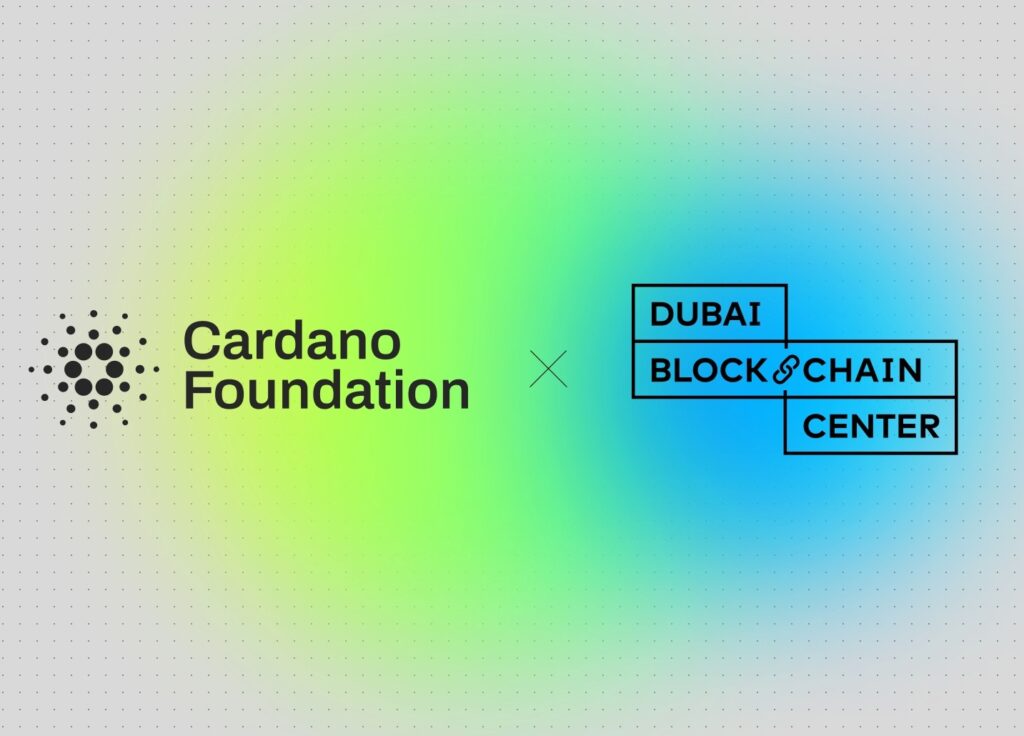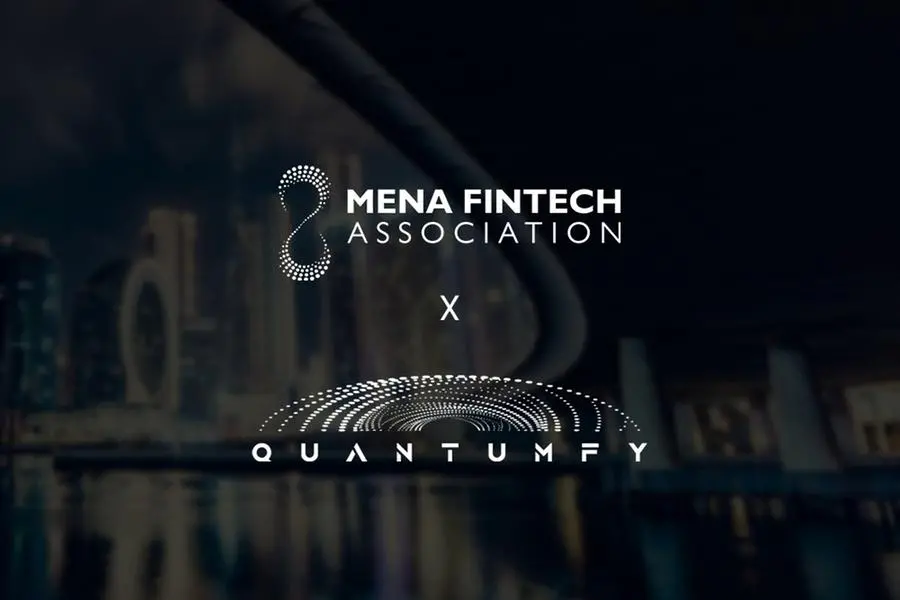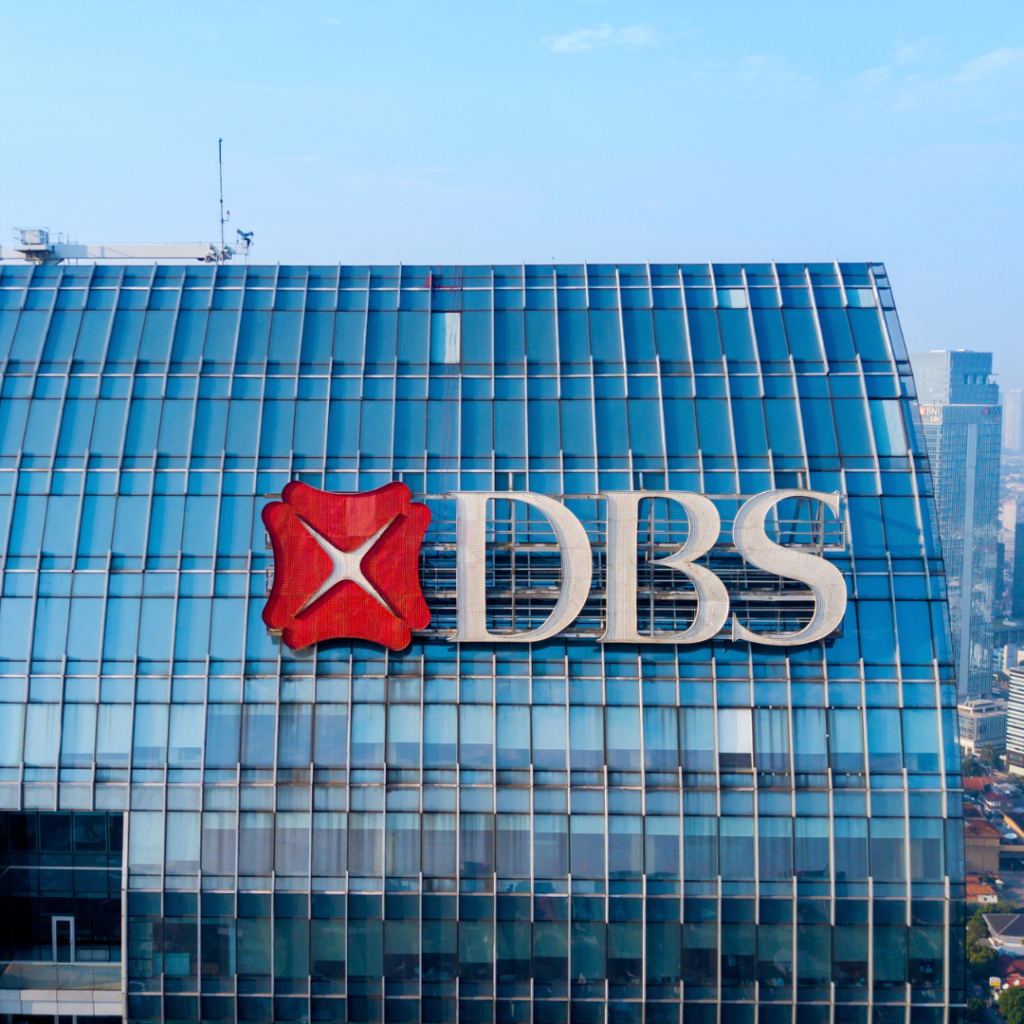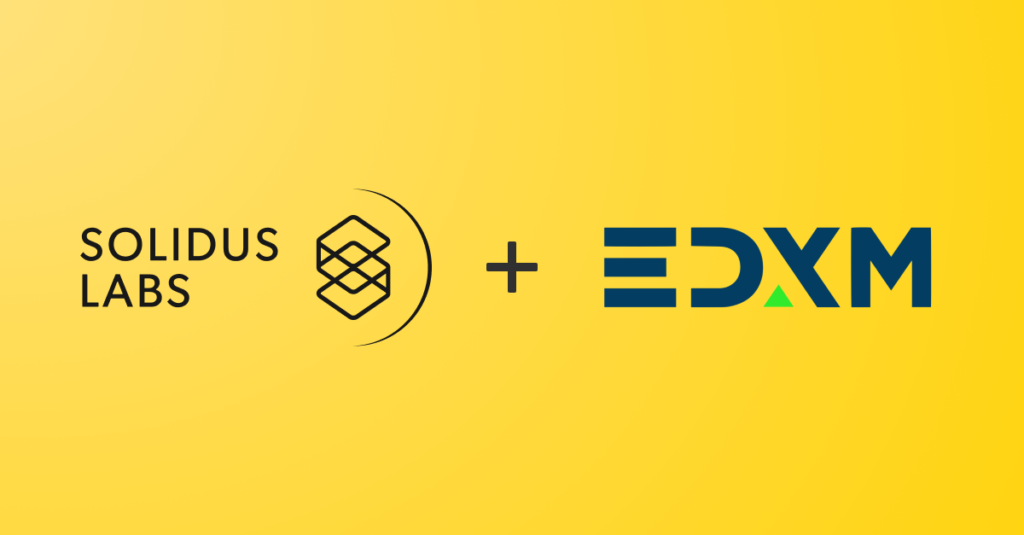Switching to the Satoshi standard and Lightning Network connectivity makes Bitcoin more tangible and easy to use. AAX has made the first move in the crypto space, already providing BTC to SAT
Global Finance & Technology Network (GFTN) Announces Board of Directors
LiveThe Global Finance & Technology Network (GFTN) announced today its Board of Directors and International Advisory Board.
The Board of Directors will be responsible for governance and oversight of GFTN, whose mission is to harness technology and foster innovation through global partnerships for more efficient, resilient, and inclusive financial ecosystems.
Ravi Menon, Ambassador (Climate Action), Singapore, and former Managing Director, Monetary Authority of Singapore (MAS), chairs the GFTN Board of Directors, and is joined by two Deputy Chairs:
- Leong Sing Chiong, Deputy Managing Director, Monetary Authority of Singapore
- Neil Parekh, Nominated Member of Parliament, Singapore; Non-Executive Chairman, Tikehau Capital
Members of the Board of Directors:
- Iqbal Jumabhoy, Chief Executive Officer, ProsperCap Corporation Limited
- Professor Lam Khin Yong, Vice President (Industry), Nanyang Technological University Singapore; Senior Advisor to Hungarian Minister of Culture and Innovation
- Andrew Lim, Partner, Allen & Gledhill
- Jessica Tan, Group Executive Vice President and President, Sunlife Canada
- Sopnendu Mohanty, Group Chief Executive Officer – Designate, GFTN; Chief FinTech Officer, Monetary Authority of Singapore
GTFN’s Board of Directors will be guided by an International Advisory Board, comprising distinguished public and private sector leaders with a demonstrated commitment to the public interest.
Members of the International Advisory Board include:
- Dominic Barton, Chairman, LeapFrog Investments; Chairman, Rio Tinto; former Global Managing Partner, McKinsey & Company
- Hon. Paula Ingabire, Minister of ICT and Innovation, Republic of Rwanda
- Eric Jing, Chairman and Chief Executive Officer, Ant Group; Chairman, Ant International
- Dr Patrick Njoroge, former Governor, Central Bank of Kenya
- Dr Veerathai Santiprabhob, former Governor, Bank of Thailand
- Dr Axel Weber, Advisor, Raisin; former Chairman of the Board, UBS Group AG; former President, Deutsche Bundesbank
“I am honoured to be joined by an outstanding group of individuals on the Board of Directors and International Advisory Board. I look forward to welcoming more members to both the Board of Directors and the International Advisory Board as we expand GFTN’s work in harnessing innovation in financial ecosystems to create economic opportunity, strengthen resilience, improve people’s lives, and secure a more inclusive and sustainable future for all,” shared Mr Menon.
Singapore FinTech Festival’s Big Moment, Interrupted by U.S. Elections
LiveAs the Singapore FinTech Festival (SFF) kicked off its ninth edition, it’s hard to ignore the juxtaposition of two global events: the world’s largest fintech gathering and the outcome of the U.S. presidential election. While SFF 2024 promises to push the boundaries of financial technology with a focus on artificial intelligence (AI) and quantum computing, its moment in the spotlight is inevitably dimmed by the political theater unfolding across the Pacific.
For all its promise, this year’s SFF is a case study in how even the most future-focused industries remain tethered to the geopolitical realities of today.
The Tech Show Must Go On
Let’s be clear: SFF is a powerhouse event. With over 900 speakers and 600 exhibitors, it has evolved into a global platform where fintech heavyweights converge to debate everything from AI ethics to the future of digital assets. This year’s agenda reads like a playbook for the future of finance—quantum technologies poised to revolutionize cryptography, AI-driven models promising hyper-personalized banking, and green finance solutions aimed at decarbonizing the industry.
Yet, as Sopnendu Mohanty of the Monetary Authority of Singapore aptly put it, innovation doesn’t happen in isolation. The festival serves as a crucible for ideas, but those ideas must contend with the reality of regulatory frameworks, trade policies, and political uncertainties.
And right now, the biggest uncertainty is emanating from Washington.
The Elephant in the Room
The U.S. election results loom large over SFF, not because they’re directly related to fintech, but because of their broader implications for global markets. The financial world thrives on stability and predictability—qualities that have been in short supply amid a polarized U.S. political climate. A shift in administration could alter the regulatory environment for digital assets, impact trade relations, and even sway global attitudes toward central bank digital currencies (CBDCs).
For fintech firms banking on cross-border collaborations and market expansions, the election’s outcome could reshape priorities. Will the U.S. adopt a more collaborative stance on global financial regulations, or will it retreat into protectionism? The answer matters, and it’s likely to be a recurring topic in the corridors of SFF.
FinTech’s Resilience in a Divided World
The irony, of course, is that fintech was born out of disruption. It’s an industry that thrives on solving problems and turning crises into opportunities. Whether it’s building more inclusive financial systems or cracking the code on interoperable payment networks, fintech doesn’t wait for permission from the geopolitical playbook.
Paul Lee of Constellar captured this sentiment when he noted that emerging technologies offer businesses the tools to build resilience. But resilience isn’t just about weathering the storm; it’s about seizing the moment to lead. For Asia, and Singapore in particular, this means doubling down on its role as a hub for fintech innovation, irrespective of external noise.
Why SFF Still Matters
Despite the distraction, SFF remains a vital barometer for the industry’s direction. Its emphasis on AI and quantum computing signals a clear pivot toward technologies that promise exponential change. These aren’t just buzzwords—they’re the future backbone of a financial system that will be faster, smarter, and more secure.
What’s more, SFF’s broader themes—sustainability, financial inclusion, and talent development—underscore the industry’s commitment to creating not just a more efficient financial system, but a more equitable one. It’s a reminder that fintech’s true value lies not in its ability to dazzle with new tech, but in its capacity to solve real-world problems.
A World Watching Two Screens
In the end, SFF 2024 will undoubtedly yield its share of headlines and breakthroughs. But for now, attendees and industry watchers alike are juggling two screens: one showcasing the promise of a fintech-powered future, and the other streaming the political drama of the U.S. elections.
The challenge—and opportunity—lies in ensuring that no matter who occupies the White House, the world’s financial ecosystem continues to innovate and thrive. SFF is proof that even in uncertain times, the future of finance waits for no one.
Hong Kong FinTech Week 2024 Poised to Draw 30,000 Attendees
LiveHong Kong is gearing up to host the ninth edition of its flagship event, Hong Kong FinTech Week (HKFW), from October 28 to November 1, 2024. This year’s conference, themed “Illuminating New Pathways in Fintech,” is designed to reinforce the city’s status as a premier global finance and fintech hub.
Organized by InvestHK and the Financial Services and the Treasury Bureau in collaboration with the Hong Kong Monetary Authority (HKMA), Securities and Futures Commission (SFC), and Insurance Authority (IA), HKFW is projected to attract over 30,000 attendees from more than 100 economies, underscoring its international reach and influence.
Set at the Hong Kong AsiaWorld-Expo from October 28-29, the main conference will spotlight fintech’s latest advancements, with a notable emphasis on artificial intelligence (AI). Hong Kong’s rapid adoption of generative AI in finance has outpaced global standards, positioning the city as a key player in tech-enabled financial services.
Mainland China’s tech giants are expected to make a strong showing, highlighting Hong Kong’s role as a “super connector” linking markets across ASEAN and the Middle East. The event will feature eight themed forums covering topics such as AI, blockchain, digital assets, and green finance.
A key highlight will be the Global Fast Track programme, designed to provide fintech startups a platform to connect with potential investors and partners. This year’s programme attracted over 500 applications from 56 economies, culminating in live pitches that will showcase cutting-edge fintech solutions.
Beyond the core conference, HKFW 2024 will host a series of community events, including a tour of the Greater Bay Area and Hong Kong’s first-ever Web3x3 basketball tournament. Set to launch on October 26-27 at Kwun Tong City Centre Free Space and Playground, with finals at AsiaWorld-Expo on October 29, the tournament will see finance, technology, and Web 3.0 professionals compete under FIBA 3×3 rules, with teams required to include at least one female player. Part of the entry fees will benefit InspiringHK, a charity dedicated to supporting underprivileged children in Hong Kong.
Hong Kong’s financial leadership remains undisputed. The city ranks third globally in the latest Global Financial Centres Index and first in the Asia Pacific region. In fintech, Hong Kong jumped five places to ninth, underscoring its position among the world’s top 10 fintech hubs. This achievement reflects the concerted efforts of the government, regulators, and industry players to advance the city’s fintech ecosystem.
“With its strategic location and robust financial infrastructure, Hong Kong is poised to lead the next wave of fintech innovation and serve as a ‘super connector’ for the global financial community,” said Christopher Hui, Secretary for Financial Services and the Treasury. “Hong Kong is primed to uncover new pathways to opportunities, leveraging its strengths as a global financial centre.”
Echoing Hui’s sentiment, Alpha Lau, Director-General of Investment Promotion at InvestHK, emphasized the city’s commitment to expanding its fintech ecosystem: “Hong Kong FinTech Week serves as a powerful engine to turn these ambitions into action. It is not just a platform to attract businesses to Hong Kong, but also a bridge to global opportunities. We will continue to promote Hong Kong’s strengths in financial services, innovation, and technology across key markets, including ASEAN and the Middle East.”
M2P Fintech raises $100 million in Series D Financing led by Helios Investment Partners, valuation surpasses $785 million
LiveCompany to focus on new products that will strengthen its market leadership in India and expand operations in MENA and to Africa
M2P Fintech, Asia’s largest Banking infrastructure company, announced today the first close of its Series D financing, raising $100 million through a mix of primary and secondary share capital. The financing was led by Helios Investment Partners and places the company’s valuation at over $785 million. The funds will be utilized to cement M2P’s market leadership in India, besides helping grow its international franchise, particularly in Africa.
The round also saw participation from marquee Banks across Asia, with existing Investor Flourish Ventures doubling down on the company, underscoring strong confidence in M2P’s innovative banking infrastructure, which powers a wide range of financial institutions across the globe.
Strengthening Leadership in Banking Infrastructure
M2P solidified its position as the leading banking infrastructure provider, collaborating with leading consumer technology companies, Banks, NBFCs, and startups to drive innovative fintech solutions. With this investment, M2P is vying to accelerate its growth by enhancing its technology stack, focusing heavily on leveraging artificial intelligence and building out advanced data capabilities that will not only expand M2P’s core offerings but also empower the company to scale its partnerships with financial institutions, delivering cutting-edge financial products and capabilities.
Global Expansion, with Africa in Focus
Over the past few years, M2P has strategically expanded its global footprint, with a strong emphasis on emerging markets. Africa now stands as the company’s next major growth frontier, presenting vast potential due to the continent’s rapidly evolving financial ecosystem. With rising smartphone adoption and the increasing prominence of mobile-led financial services delivery, M2P is well-positioned to capitalize on this opportunity.
By leveraging its robust banking infrastructure, the company aims to deliver seamless “Bank in a Box” solutions alongside digital payments, credit card issuance, and a suite of financial services customized to meet the unique demands of local markets.
The company is also eyeing strategic expansions into select countries in the ASEAN region, besides enhancing its strong presence in the Middle East region, thereby aligning with its vision to build a truly global banking technology infrastructure business.
Madhusudanan R, M2P Fintech CEO s Co-founder, said: “As the world’s largest Banking-as-a-Service provider, this capital infusion will not only reinforce our leadership in India—where we’ve established a robust, comprehensive ecosystem—but also accelerate our ambitious global expansion efforts. Africa, with its rapidly growing digital economy and pressing need for financial inclusion, presents immense potential for fintech innovation. We’re thrilled to partner with Helios, whose deep understanding of the African market, coupled with our powerful platform capabilities, will position us well to deliver on our mission of fostering financial inclusion and innovation.”
Elias Yazbeck, Managing Director, Financial Services and Fintech at Helios Investment Partners, said: “We at Helios are delighted to be providing investment and operational expertise to support M2P’s international expansion, with a strong focus on Africa. Helios has a significant track record in growing fintech and financial services businesses on the continent, and this investment aligns with our strategy to invest in high-growth, tech-focused businesses.”
Karm Legal Consultants Assists Fintech Comera Pay in Securing Regulatory Approvals from the Central Bank of the UAE
LiveKarm Legal Consultants is pleased to announce that its client, Comera Pay has successfully obtained licenses under both Retail Payment Services Card Schemes Regulation (RPSCS) and Stored Value Facility Regulation (SVF) from the Central Bank of the UAE. These licenses represent a significant milestone for Comera Pay as it prepares to launch a comprehensive range of digital financial services in the UAE.
The team at Karm Legal, comprising Akshata Namjoshi, Ratul Roshan, Vaibhavi Tadwalkar, and Kabir Hastir Kumar, provided strategic legal support and advisory services throughout the application process to Comera Pay. This accomplishment reflects the close collaboration between Comera Pay and Karm Legal, ensuring compliance with the stringent regulatory requirements set by the Central Bank of the UAE.
Comera Pay is set to introduce a diverse portfolio of digital financial solutions designed to cater to both individual consumers and businesses across the UAE. The company’s offerings will include digital wallets, fund transfer services, prepaid cards, virtual IBANs, bill payments, and other innovative financial products for consumers. Businesses will benefit from advanced payment processing solutions, QR code acceptance, multi-currency wallets, B2B transfers, corporate expense cards, and merchant acquiring services.
“Karm Legal Consultants is committed to supporting the development of the fintech sector in the UAE by providing robust legal and regulatory guidance,” said Akshata Namjoshi, Associate Partner at Karm Legal. “We are proud to have supported Comera Pay in obtaining these critical licenses, which will enable them to contribute to the evolving digital financial landscape in the region.”
Comera Pay quote here ‘’We are extremely proud of receiving the RPSCS and SVF licenses issued by the Central Bank of the UAE in such a short period of time. This is a significant milestone for us that opens new opportunities for Comera Pay and for our UAE customers. We had a great experience working with Karm on this application, and the proactive support we received from them’’.
The RPSCS and SVF licenses issued by the Central Bank of the UAE (CBUAE) are essential for companies in the digital payments and financial technology sector. The RPSCS license allows companies to issue cards and acquire and aggregate funds to support merchants and e-commerce players. The SVF license enables companies to issue and manage stored value instruments, such as digital wallets. Both licenses are crucial for companies aiming to operate within the UAE’s secure and innovative digital financial ecosystem.
Dubai Blockchain Center and Cardano Foundation Forge Strategic Partnership to Revolutionize Blockchain Education in the MENA Region
LiveThe Dubai Blockchain Center (DBCC) has entered into a strategic collaboration with the Cardano Foundation, marking a significant step forward in advancing blockchain education and technology adoption across the Middle East and North Africa (MENA) region. This partnership, formalized today, follows the initial announcement at the Dubai TOKEN2049 event and represents a major milestone in bringing together two forces in the blockchain industry.
The agreement sets the stage for an innovative series of educational initiatives, including two masterclasses designed to elevate the understanding and practical application of advanced blockchain technologies among industry professionals. The first of these, titled “Blockchain Technology Fundamentals for Enterprise Enablement,” is scheduled to take place at Emirates Towers in September 2024. This will be followed by a second masterclass during the highly anticipated Cardano Summit on 23-24 October 2024. These sessions will not only cover the core principles of third-generation blockchain but will also delve into its transformative potential for enterprises, particularly in sectors such as supply chain management, digital assets, and climate impact.
The collaboration is particularly notable for integrating the Cardano Academy’s educational resources with DBCC’s training programs and the collaboration is expected to provide unparalleled learning opportunities, equipping participants with the knowledge required to drive blockchain adoption within their organizations.
Dr. Marwan Alzarouni, CEO of Dubai Blockchain Center, expressed his enthusiasm for the partnership, stating, “This collaboration with the Cardano Foundation aligns perfectly with our mission to position Dubai as a global leader in blockchain innovation. By bringing together our expertise and resources, we are poised to deliver world-class education that will empower professionals across the MENA region to harness the full potential of blockchain technology.”
Frederik Gregaard, CEO of the Cardano Foundation, added, “Dubai is increasingly being recognized as one of the leading locations for blockchain technology, with a continued investment in and dedication to the advancement of blockchain utility. By deepening our connections in Dubai and this region, the Cardano Foundation will continue to drive forward the adoption and operational resilience of this key technology.”
This collaboration further solidifies Dubai’s position as a leading hub for blockchain technology and innovation. The Cardano Foundation’s decision to host its annual summit in Dubai for the second consecutive year underscores the city’s growing influence in the global blockchain global ecosystem.
The partnership also offers exclusive opportunities for participants, including vouchers for the Cardano Blockchain Certified Associate Course and chances to win tickets to the Cardano Summit. These incentives aim to foster greater engagement and support the broader goal of advancing blockchain literacy among professionals in the region.
As both organizations look to the future, this partnership promises to deliver lasting impact by nurturing a new generation of blockchain-savvy leaders who will drive the digital transformation across various industries.
For more information and to register your interest for joining, visit https://lu.ma/gy0u0g7b.
QuantumFy Launches in the Middle East and joins Mena Fintech Association
LiveQuantumFy, a global technology hub, today announced its expansion into the Middle East and its membership in the MENA FinTech Association (MFTA), aimed at driving business growth in the Middle East and North Africa (MENA).
Founded in 2018, the MENA Fintech Association has earned recognition as one of the top 4 fintech groups globally. With a strong presence in the Middle East and Africa, the association has been at the forefront of driving innovation and fostering collaboration in the fintech industry. The MENA FINTECH ASSOCIATION (MFTA) is an inclusive, not-for-profit association that fosters an open dialogue for the MENA Fintech community, shaping the future of financial services in the region.
Aligning with its strategy to extend its reach into new emerging markets, QuantumFy’s collaboration with the MENA Fintech Association is a step towards leveraging its expertise in the region. QuantumFy specializes in tailored banking, payment, and investment technology solutions, and plans to adapt these to meet the specific needs of the Middle East market.
Margit Gulyas, CEO of QuantumFy, shared her thoughts on the expansion: “Entering the Middle East with our partnership with the MENA FinTech Association is a key step in our strategy. We’re looking to bring our technology solutions to a market that’s showing rapid growth in fintech. Our goal is to be more than just a participant; we want to contribute to the region’s fintech development.” As a member of the MFTA, QuantumFy is committed to contributing to the regional fintech ecosystem by offering unique software engineering insights. Our focus is to support digital transformation in sectors such as finance and payments, providing innovative artificial intelligence, system integration platforms, and transaction monitoring for fintechs. This partnership is expected to bolster the development of the entire fintech community, fostering more innovative solutions and projects in the MENA region. Additionally, QuantumFy will take a leading role in the SHIFT Payments and Digital Assets working groups, collaborating with industry peers. We plan to host panel discussions, workshops, and produce reports, all aimed at advancing the industry.
Nameer Khan, Chairman MENA Fintech Association and Founder of FILS stated the following in regards to this partnership,” We are honoured to welcome to Quantum Fy to the MENA fintech community. We believe that our association will provide an invaluable platform for the expansion and growth of their business endeavours in the region. In the current landscape, where digital banking activities and financial services innovation are reaching new heights across the Middle East and Africa, Quantum Fy’s strategic entrance aligns perfectly with the industry’s soaring standards. We are confident that Quantum Fy has chosen the opportune moment to establish its presence in the region, and we eagerly anticipate witnessing the remarkable success that is sure to unfold as a result.”
The move into the Middle East aligns with QuantumFy’s aim to broaden its market presence and respond to the diverse needs of different regions. The MENA Fintech Association, established in 2018, plays an integral role in the fintech industry, connecting various industry players and promoting an environment of growth and innovation.
This partnership marks a significant step for QuantumFy in its efforts to expand its operations and impact in the financial technology sector.
ADGM Launches World’s First Legal Framework for Blockchain Foundations and DAOs
LiveAbu Dhabi Global Market (ADGM) has announced the launch of the world’s first-ever legal framework specifically designed for Blockchain Foundations and Decentralized Autonomous Organisations (DAOs). This pioneering framework is poised to establish a new global standard in the regulatory landscape of Distributed Ledger Technology (DLT) and blockchain sectors.
Developed in active collaboration with key players in the industry, this framework uniquely caters to the regulatory and operational peculiarities of the blockchain ecosystem. It represents a major step forward in providing a solid legal structure for both Blockchain Foundations and DAOs, addressing a long-standing gap in the digital assets world.
One of the critical features of the ADGM’s framework is its full recognition of Virtual Assets. This includes provisions for the issuance and governance of tokens, significantly enhancing the flexibility and efficiency of blockchain operations. The framework’s innovative approach allows entities to be established without the conventional bylaws, thereby accommodating diverse governance models such as token voting and smart contract usage.
Furthermore, the framework simplifies the incorporation and migration process for these organizations. With options for migration from other jurisdictions and legal protections to safeguard entity assets against foreign claims, ADGM offers a highly attractive proposition for both new and existing Blockchain Foundations and DAOs. The absence of a mandatory physical presence requirement further underscores the ADGM’s commitment to fostering a flexible and inclusive digital asset environment.
Underpinning this framework is the application of English Common Law, ensuring a familiar, stable, and trusted legal foundation. This integration is crucial in enhancing the international appeal and effectiveness of the ADGM’s framework, potentially driving more blockchain and DLT entities to consider setting up or migrating to this jurisdiction.
By instituting this forward-thinking framework, ADGM not only positions itself at the forefront of digital asset regulation but also significantly contributes to the broader evolution and maturity of the global blockchain industry. This development is expected to catalyze growth and innovation within the sector, establishing a more prosperous and regulated digital asset ecosystem worldwide.
MAS Halts DBS Bank’s Non-Essential Activities for Six Months Amid Efforts to Enhance System Resilience
LiveIn a decisive move to ensure the stability and reliability of digital banking services, the Monetary Authority of Singapore (MAS) has enforced a six-month moratorium on non-essential IT modifications for DBS Bank Ltd. Furthermore, the bank is prohibited from pursuing new business expansions and downsizing its existing branch and ATM operations in Singapore during this period. This decision was made in the wake of persistent service disruptions experienced by DBS Bank this year.
Earlier in April, MAS instructed DBS Bank to commission an impartial third-party assessment of its digital banking support structures. The evaluation highlighted several areas of concern, including System durability, Incident resolution, Change administration and Tech risk governance and supervision.
In response, DBS Bank has devised a phased technology resilience strategy to rectify these issues, enhance its digital service robustness, and ensure preparedness for future digital banking demands. Notably, modifications to its system design will require an extended execution period.
Upon scrutinizing DBS Bank’s corrective action plan, MAS expressed contentment regarding its comprehensiveness and the proactive steps slated to enhance system robustness. The bank’s senior management will be held accountable for any past shortcomings, and the board will amplify its governance model to monitor the roadmap’s execution.
For the next six months, MAS mandates that DBS Bank halts all IT system alterations, barring those related to security, regulatory adherence, and risk management. This step is pivotal to ensure the bank dedicates substantial resources to fortifying its tech risk management frameworks. During this interval, MAS will also withhold approval for any of DBS Bank’s new business proposals.
To safeguard customers and provide alternative transaction methods in case of future digital service hiccups, MAS has also directed the bank to maintain its current branch and ATM dimensions until DBS’s recovery plan shows satisfactory advancement.
MAS plans to evaluate DBS Bank’s remediation endeavors after six months. Depending on the progress, MAS may consider extending or adjusting the imposed measures. Presently, MAS has retained a 1.8x multiplier on DBS Bank’s risk-weighted assets for operational risk, instated post the incidents of March and May 2023.
It is projected to take DBS Bank approximately two years to implement all the structural modifications for bolstering its digital banking service resilience. Despite these efforts, the possibility of sporadic disruptions remains. During such occurrences, MAS anticipates swift service recovery from DBS Bank, accompanied by clear and prompt customer communication.
Ms Ho Hern Shin, MAS’s Deputy Managing Director (Financial Supervision), remarked, “DBS needs to promptly implement measures to assure consistent service while concurrently fortifying its operational fortitude. This six-month hiatus provides the bank with the requisite window to uphold and reinforce customer confidence.”
EDX Markets Partners with Solidus Labs to Support Best-in-Class Comprehensive Transaction Monitoring
EDX Markets (EDX) announced that it has partnered with Solidus Labs to provide transaction monitoring across EDX’s platform. Through this partnership, EDX plans to provide customers with seamless end-to-end transactional risk management capabilities in order to maintain the highest compliance standards across the cryptocurrency industry and reflect key institutional best practices.
Solidus Labs’ HALO, an automated, comprehensive and testable trade surveillance and market integrity hub tailored for digital assets, is currently used to monitor over 250 million events and $16 trillion in on- and off-chain trading volume per day across more than 150 markets, protecting more than 25 million individual and institutional investors. EDX will leverage Solidus Labs’ machine learning-powered detection models and Universal Client Risk Profile capability to identify unusual or suspicious activity on its platform, and review and coordinate the appropriate risk response.
“Solidus’ transaction monitoring solution is a powerful addition to EDX’s suite of compliance measures,” said Chris Tyrrell, Chief Compliance Officer of EDX. “We are focused on bringing the best of traditional finance to cryptocurrency markets and are committed to ensuring safe and compliant trading. As an industry-leading provider of AML solutions for detection of money laundering and financial crime activities in crypto markets, Solidus will help us protect the integrity of our platform while meeting regulatory expectations and Wall Street-grade best practices.”
“We are proud to support EDX’s vision and meet the demand for a safe and compliant cryptocurrency market,” added Asaf Meir, Solidus Labs’ Founder and Chief Executive. “Bridging traditional and digital finance through crypto-native risk mitigation tools is core to our mission, and we look forward to working together with EDX to continually increase the standards for safe and integrity-driven crypto trading.”
Backed by a consortium of major financial institutions, EDX has opened trading as the crypto marketplace of choice for industry leaders and builds on best practices from traditional finance to provide customers with distinctive benefits including liquidity, competitive quotes and a unique, non-custodial model designed to mitigate conflicts of interest. EDX also introduced a retail-only quote to the crypto markets, allowing participants the benefit of better pricing for retail-originated orders. Products listed for trading on EDX include Bitcoin (BTC), Ethereum (ETH), Litecoin (LTC) and Bitcoin Cash (BCH).



